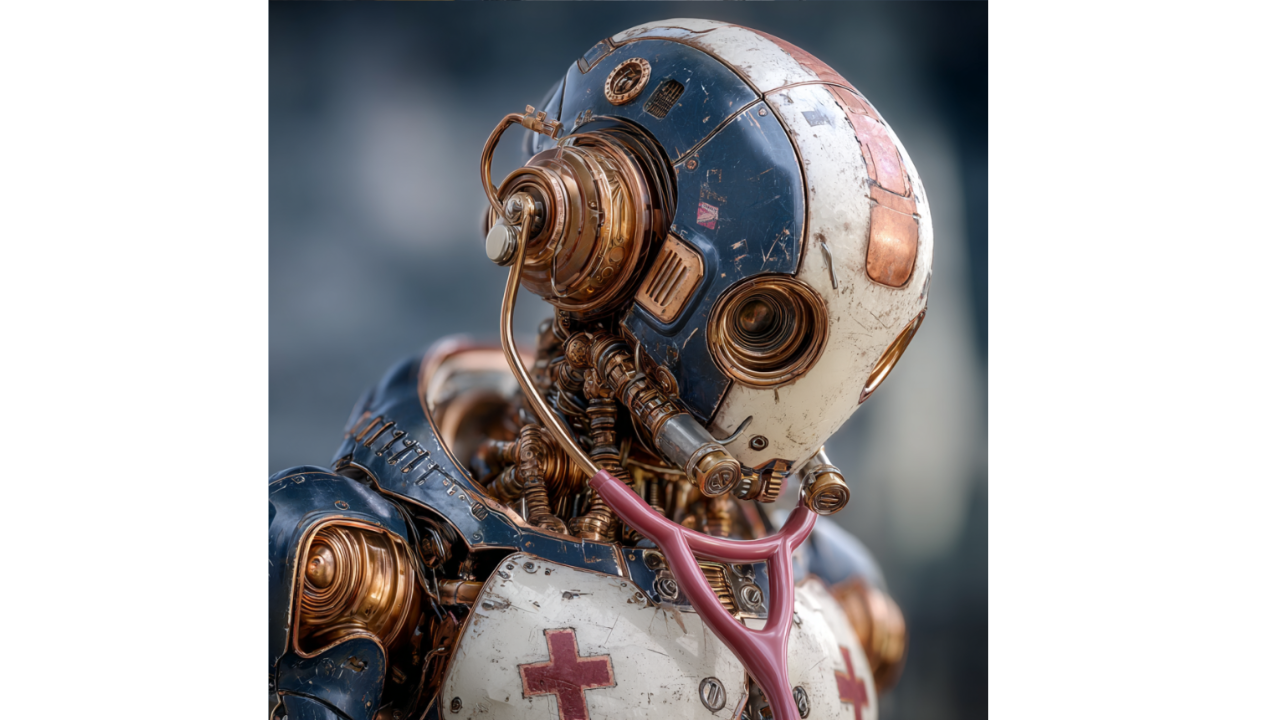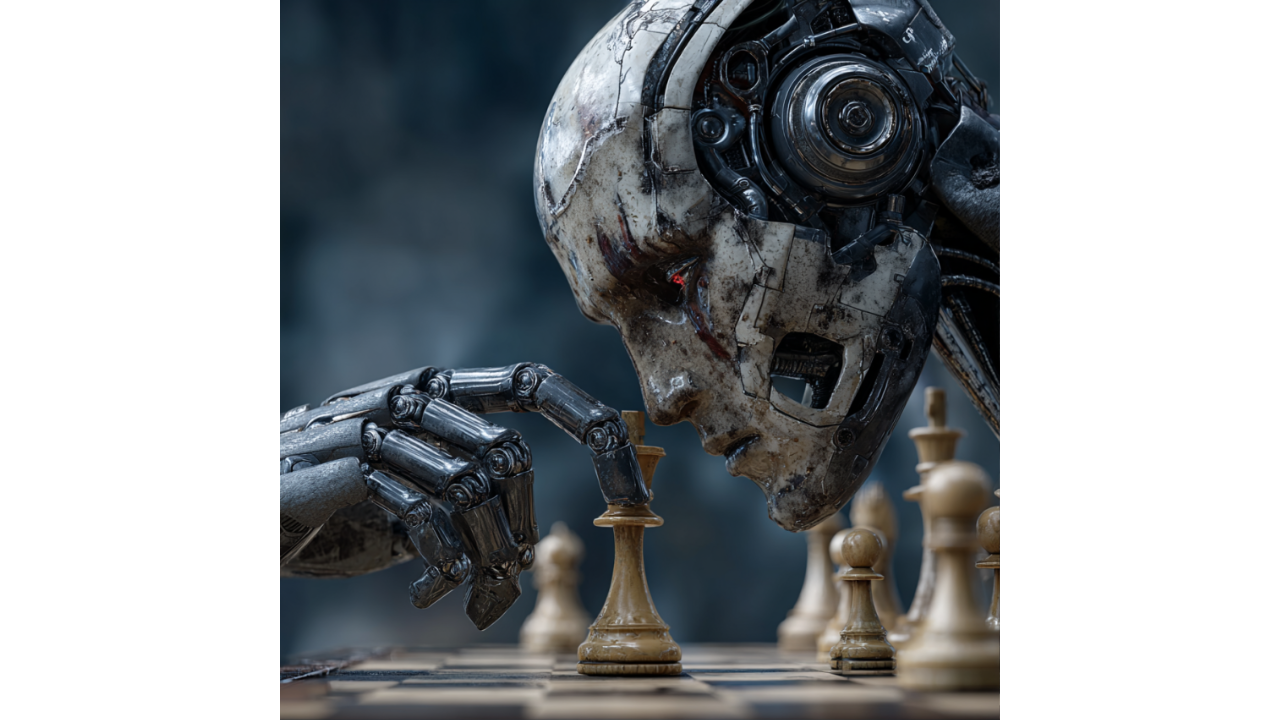DeepMind Says Video Models Are the Next LLMs, Powered by Zero-Shot "Chain-of-Frames"
Google DeepMind just published a paper that reframes how we should think about video generation models. Not as creative tools for making clips, but...
3 min read
 Writing Team
:
Aug 6, 2025 8:00:00 AM
Writing Team
:
Aug 6, 2025 8:00:00 AM

There's something almost quaint about watching tech executives parse medicine like a video game character sheet. Demis Hassabis, Google DeepMind's CEO, recently declared that AI can replace doctors' tasks but never nurses because—and I'm paraphrasing here—nurses hold hands and AI cannot. It's the kind of reductive reasoning that would make a first-year medical student cringe, yet it's being delivered by someone whose company is actively reshaping healthcare.
The premise rests on a false binary: that medicine divides neatly into "data processing" (doctors) versus "human connection" (nurses). Anyone who's spent more than five minutes in actual clinical practice knows this is intellectual theater. But the real problem isn't Hassabis's oversimplification—it's that the data already proves him wrong about the "easy" part.
@aeyespybywinsome Medicine isn't just data tho. #medicine #doctors #nurses
♬ original sound - AEyeSpy
Recent studies reveal a fascinating paradox that should give us pause. ChatGPT alone achieved a median diagnostic accuracy of about 92%—equivalent to an "A" grade—while physicians in both AI-assisted and non-AI groups earned median scores of 74 and 76, respectively. Stanford researchers found that doctors didn't improve when given access to AI tools, despite the AI significantly outperforming them solo.
Here's where it gets interesting: A comprehensive meta-analysis of 83 studies found that AI models performed significantly worse than expert physicians, despite showing no significant difference compared to non-expert physicians. Meanwhile, Microsoft's diagnostic AI achieved four-fold higher accuracy than human doctors at 20% lower cost in controlled testing.
The picture emerging from 2024-2025 research is more nuanced than Hassabis's binary suggests. AI excels in controlled environments with clean data sets, but struggles when expert clinical judgment enters the equation. This isn't a story about AI replacing doctors—it's about AI exposing the complexity of what doctors actually do.
Nearly 800,000 Americans die or are permanently disabled by diagnostic error each year, and up to 40% of ICU patients experience diagnostic errors. These aren't failures of data processing—they're failures of interpretation, context, and judgment. The kind of reasoning that turns symptoms into stories, patterns into people.
Consider what happens in the 92% of cases where AI gets the diagnosis "right" in testing. The AI identifies the correct condition from a curated vignette with predetermined variables. But real medicine isn't multiple choice. It's a 67-year-old woman whose chest pain might be cardiac, might be anxiety from her recent divorce, might be gastric reflux from the new medication her cardiologist prescribed for something else entirely. The "correct" diagnosis depends on understanding not just pathophysiology, but biography.
Clinical judgment—not data processing—is the most prevalent risk factor in diagnostic errors according to malpractice claims data. This isn't because doctors are bad at math; it's because medicine is fundamentally interpretive. Every symptom exists in context. Every test result requires translation from probability to person.
Hassabis's claim
that nurses can't be replaced because they "hold hands" reveals a stunning misunderstanding of nursing practice. Modern nursing involves complex clinical reasoning, medication management, patient assessment, and care coordination. The idea that nursing is primarily emotional labor while doctoring is purely analytical shows someone who's never watched a nurse catch a subtle change in patient status that saves a life.
But here's the deeper issue: the same interpretive complexity that makes nursing irreplaceable also makes doctoring irreplaceable. Both require what researchers call "clinical judgment"—the ability to synthesize objective data with subjective understanding, to read between the lines of what patients say and don't say.
Patient narratives reveal that diagnostic errors often stem from "soft" factors including clinicians' attitudes, communication failures, and the complex dynamics of patient-physician interaction. These aren't edge cases—they're the core of medical practice.
The tech industry's approach to medicine reflects a broader misunderstanding of knowledge work. They see diagnosis as pattern matching at scale, treatment as algorithmic optimization. But medicine isn't Spotify recommendations for sickness. It's the art of uncertainty management in high-stakes human contexts.
AI makes doctors faster, not necessarily better, according to recent analysis. And speed optimization is exactly what you'd expect from an industry that measures success in engagement metrics and conversion rates. But medicine isn't optimizing for throughput—it's optimizing for human flourishing under conditions of irreducible uncertainty.
The most revealing finding? Researchers were surprised that adding human physicians to AI actually reduced diagnostic accuracy while improving efficiency. This tells us everything about where we're headed: AI that makes us faster at being wrong.
We're not heading toward AI replacing doctors or nurses. We're heading toward AI becoming another tool in an increasingly complex interpretive practice. The question isn't whether machines can hold hands—it's whether they can understand what the handholding means in the context of a specific person's specific story.
The data suggests AI will excel at the pattern-matching aspects of medicine while humans retain responsibility for the interpretation, context, and judgment that transforms data into care. That's not a failure of AI—it's a recognition of what medicine actually is.
Hassabis got one thing right: AI can't hold someone's hand. But neither can it read the fear in their eyes, understand the silence between their words, or know when the "right" diagnosis misses the point entirely. That's not just true for nurses—it's true for anyone practicing medicine as more than sophisticated data analysis.
The future of healthcare won't be AI replacing humans. It'll be humans learning to work with AI while remaining irreducibly human. The hand-holding, it turns out, might be the most important part.
Ready to navigate AI's impact on your marketing strategy? Our growth experts help brands harness AI tools while maintaining the human insight that drives real results. Let's talk.

Google DeepMind just published a paper that reframes how we should think about video generation models. Not as creative tools for making clips, but...

Google DeepMind just declared another "historic" AI breakthrough, claiming their Gemini 2.5 model achieved human-level performance at an...

We have a problem with AI that no amount of training data will fix: Large language models hallucinate with confidence, asserting falsehoods as...